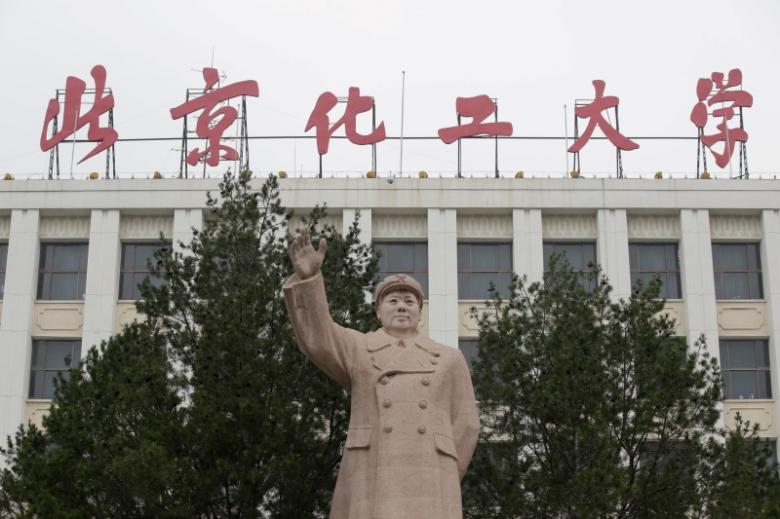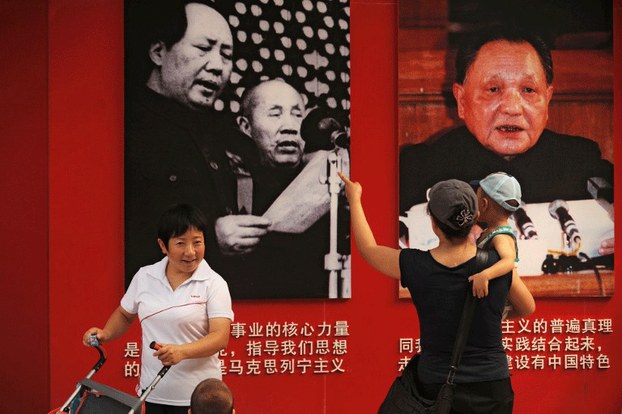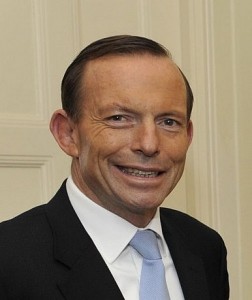By Byron Kaye | SYDNEY

A statue of late Chairman Mao Zedong is pictured at Beijing University of Chemical Technology in Beijing, China, August 4, 2016. REUTERS/Jason Lee/File Photo
SYDNEY Australia’s two biggest cities Sydney and Melbourne canceled concerts commemorating the death of former Chinese communist leader Mao Zedong, with one citing safety concerns, after Chinese Australians complained the content was insensitive.
The incident signifies the continued divisiveness of Mao among Chinese, both at home and abroad, four decades after his death.
In China there is a quiet resurgence in popularity toward Mao, with his image adorning banknotes and his embalmed body attracting hundreds, if not thousands, of visitors a day to Beijing. But there is also continued criticism among Chinese of his reign, under which tens of millions died.
For weeks, Chinese in Sydney and Melbourne complained that the “Glory and Dream” concerts, scheduled for September in both cities’ town halls, lionize a leader they see as responsible for millions of deaths.
On Thursday, a spokesperson for the City of Sydney said in an email that after consulting police, the council had “concerns regarding the potential for civil disturbance, patron-to-patron conflict and staff-to-patron conflict” and canceled the event.
The spokesperson said the concert organizers, who booked the venue and arranged the concerts without council involvement, had also determined that the event was “at high risk of disruption and elevated risk to personal safety”.
A spokeswoman for City of Melbourne said the concert was also canceled in that city, but declined to give a reason saying it was the decision of the organizers.
An organizer of the events, Sydney property developer Peter Zhu, said in a telephone call that he was only the “sponsor” and declined to comment further. The other organizer, a group called the International Cultural Exchange Association, did not respond to emails and calls.
Mao, who died in 1976, remains a polarizing figure in China.
Source: http://www.reuters.com/article/us-australia-china-mao-zedong-exclusive-idUSKCN1173NZ



